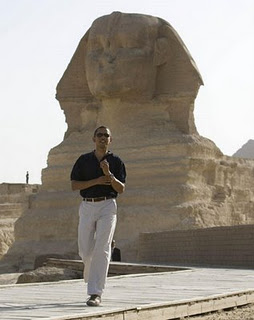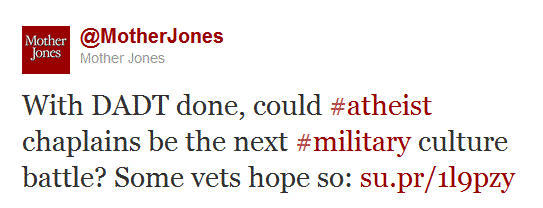Of all the daily affirmations liberals tell themselves, none soothes me more than the one about how an Al Gore presidency would have spared us the Iraq War. Why, wasn’t Al suitably smug about Dubya’s “cowboy” act in 2002? Didn’t Michael Moore open Fahrenheit 9/11 with a long rehash of hanging-chad chicanery? Who among us doesn’t yearn for the invention of time travel so that someone might mow down a certain consumer advocate with a sporty Corvair?
And yet … well, there is this from the Oct. 11, 2000, presidential debate:
MODERATOR: Well, let’s stay on the subject for a moment. New question related to this. I figured this out; in the last 20 years there have been eight major actions that involved the introduction of U.S. ground, air or naval forces. Let me name them. Lebanon, Grenada, Panama, the Persian Gulf, Somalia, Bosnia, Haiti, Kosovo. If you had been president for any of those interventions, would any of those interventions not have happened?
GORE: Can you run through the list again?
MODERATOR: Sure. Lebanon.
GORE: I thought that was a mistake. [See below.]
MODERATOR: Grenada.
GORE: I supported that.
MODERATOR: Panama.
GORE: I supported that.
MODERATOR: Persian Gulf.
GORE: Yes, I voted for it, supported it.
MODERATOR: Somalia.
GORE: Of course, and that again — no, I think that that was ill-considered. I did support it at the time. It was in the previous administration, in the Bush-Quayle administration, and I think in retrospect the lessons there are ones that we should take very, very seriously.
MODERATOR: Bosnia.
GORE: Oh, yes.
MODERATOR: Haiti.
GORE: Yes.
MODERATOR: And then Kosovo.
GORE: Yes.
 So Gore had supported seven of the eight “major” U.S. military actions of the preceding two decades. Oh, make that all eight; he must have forgotten that he supported the U.S. intervention in Lebanon too. Less than a week before the bombing that killed 241 American servicemen in Beirut, Rep. Albert Gore Jr. was the subject of a story in The New York Times. He was asked about Lebanon:
So Gore had supported seven of the eight “major” U.S. military actions of the preceding two decades. Oh, make that all eight; he must have forgotten that he supported the U.S. intervention in Lebanon too. Less than a week before the bombing that killed 241 American servicemen in Beirut, Rep. Albert Gore Jr. was the subject of a story in The New York Times. He was asked about Lebanon:
Why had he voted to continue the presence of United States troops in Lebanon for 18 months? “The decision to send troops to Lebanon was not well thought through,” Mr. Gore said, “but since they are there and there are now negotiations with the Syrians, it would be a mistake to remove them.
“It’s important to learn the right lessons of Vietnam,” he continued. “A cat that sits on a hot stove won’t sit on a hot stove again, but he won’t sit on a cold stove, either.”
Well, cold stoves can get hot mighty quickly, but that’s no reason for a cat to just steer clear of stoves, is it?
Why am I revisiting all this ancient history? Here’s Al’s old running mate in Tuesday’s USA Today:
No one doubts that the road ahead for Iraq, under even the most optimistic scenario, will continue to be challenging. There is a world of difference, however, between a future in which Iraq’s inspiring but fragile democracy perseveres, versus one in which the country collapses back into civil war, becoming a failed state in the heart of the Middle East.
There is likewise a huge difference between a future in which Iraqis can secure their country for themselves, versus one in which Iran seizes controlling influence over Iraq’s security and politics.
In order to decrease the risk of the worst case scenarios for Iraq and America, our military leaders have long argued that it is critical to keep a small U.S. force in Iraq after this year, since the Iraqi Security Forces still lack key capabilities and the country’s stability is not yet secured. In fact, every military leader I have spoken to in recent years with any responsibility for Iraq has told me we must keep at least 10,000 troops there after this year to ensure that our hard-won gains are not lost.
It is therefore profoundly disappointing that, after all America and Iraq have been through together, President Obama and Prime Minister Nouri al-Maliki could not find the will or the way to reach agreement for a small U.S. force to remain in Iraq after this year, and instead gave up trying.
This decision stands in striking contrast with the spirit of the remarkable men and women in uniform who pulled Iraq back from the brink of chaos just a few years ago, and who refused to give up or accept failure even after all hope was seemingly lost.
This failure puts at greater risk all that so many Americans and Iraqis fought, sacrificed and, in thousands of cases, gave their lives to achieve. It also hands a crucial strategic opportunity to the fanatical regime that controls Iran and that threatens us all.
Rather than trying to portray the failure of these negotiations as a success, the Obama administration could still restart its efforts to reach agreement with the Iraqis to allow a small U.S. force to remain. For the sake of our national security, and all of the blood and treasure we have spent in Iraq, we should do so.
Don’t fret, Joe. Obama’s busy right now. But once he’s safely ensconced in a second term, he might be willing to have a beer summit with the 2000 Democratic vice-presidential nominee and reexamine this rare lapse in judgment.






